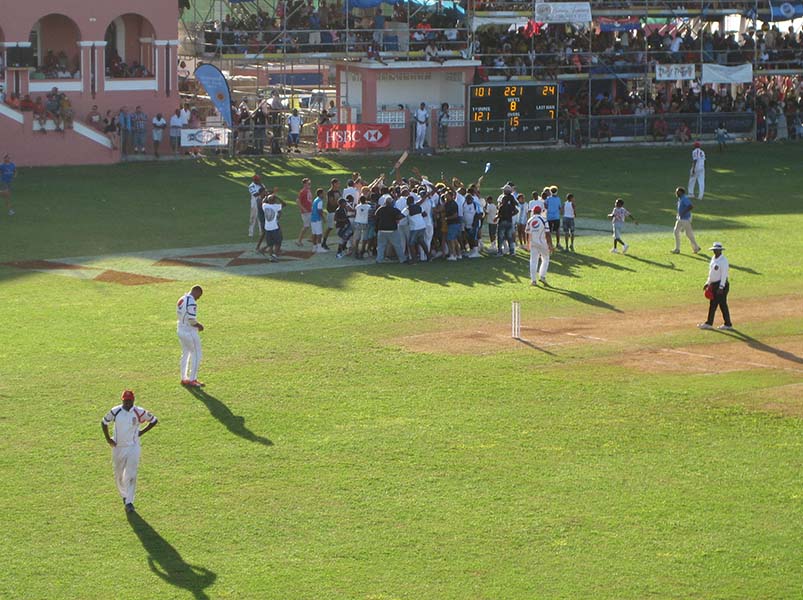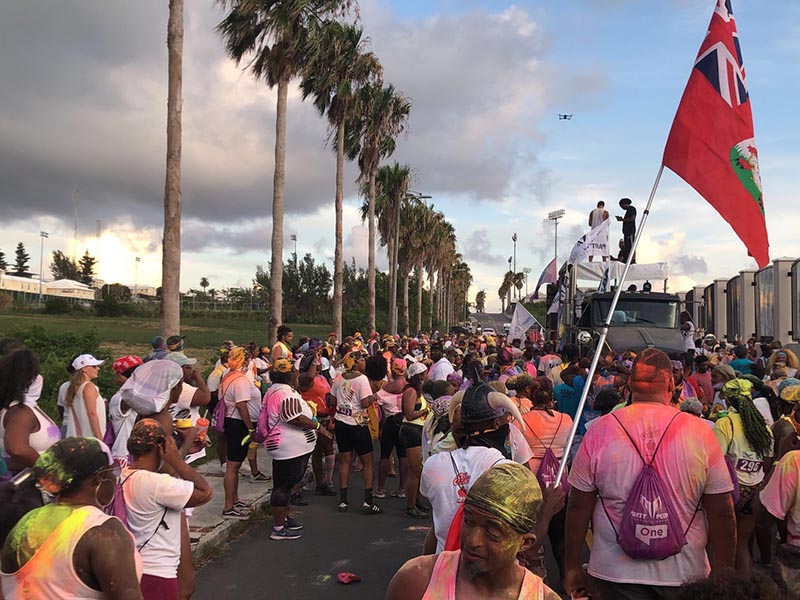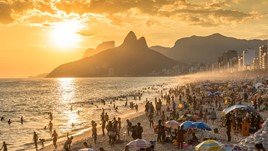
By Trene' Todd
Travel Writer31 Oct 2019 - 6 Minute Read
All my life, I’ve longed to stand tall in my culture. It was only in 2018 that I could finally say that I did. Growing up, I resonated more with my mom’s rich heritage, knowing that we have Native American, Mexican, and African American ancestry. But my Dad was born in Bermuda, a British territory in the North Atlantic that’s not technically Caribbean by geography, but definitely Caribbean in culture. He left the island at age seven, moving to the US. The only aspect of Bermuda that I received from him was my grandmother, who spoke with a deep Bermudian accent – a mix of British, Southern American, and Caribbean – but never talked about our family history.
It wasn’t until I spent more time with my auntie, who lived across the US from me while I was growing up, that I became more curious about my culture. She had lived in Bermuda longer than my Dad and had more knowledge and experience of the island than him. The first time I visited her in Virginia, she prepared Bermudian brunch – cod fish and potatoes, served with banana, avocado, and tomato chutney. I was honored to know that we have our own traditional breakfast.
Shortly after that, she showed me a picture of my great-grandmother. I almost shed a tear, seeing how much my Dad resembled her. From that moment, I had to know more about my Dad’s side of the family. When my auntie told me she was planning a visit to Bermuda in July 2018, I let her know I was interested in going with her.
We traveled to Bermuda in time for one of the island’s biggest events, Cup Match. It’s centered around a heated cricket match between two island rivals, St. George’s (on the east end) and Somerset (on the west end).
Alongside the friendly competition that goes on for two days, Cup Match also falls on Emancipation Day, commemorating the end of slavery on Bermuda. Bermudians gather to celebrate with beach parties, food, and drink. Family members I’ve never met before welcomed me with open arms and made me feel at home.
Tasty, inviting smells of fresh-baked breads and sweets filled my cousin’s house as she baked various Bermudian treats for us, like johnny bread. I felt another connection to my heritage when I learned this sweet bread was formerly known as journey bread, which my ancestors ate when they had a long day ahead of them. As I bit into it, I knew I was exactly where I belonged.
At Harbor Nights, the longest-running street festival in Bermuda, and the largest, we watched the famous Gombey dancers fill Front Street with their lively music and rhythmic drumming. An iconic symbol of Bermuda, these acrobatic performers base their routine on African, American Indian, Biblical, British, and West Indian lore and traditions.

Finally, Cup Match day arrived. Everyone showed up to show off in their best outfits, wearing red and blue for team Somerset (as we were), or light blue and navy blue for team St. Georges. Although it’s a competition – which some locals, especially the elders, take very seriously – for me, it was more like a family reunion. My auntie pulled me over to meet a cousin here and an old family friend there. Roving with a band of cousins my own age, we drank rum swizzles and tried our hands at Crown and Anchor, a Bermudian game of chance and a Cup Match tradition. Ordinarily I never gamble, but on this day I joined in the fun, all of us screaming every time the dealer would roll the dice that matched our bet.
With each passing day, I could feel my Bermudian blood flowing through my veins. For the first time in my life, I felt like I was a part of a culture. One of the purest moments, which I’ll always hold dear to my heart, was the Bacchanal Run. I was under the assumption this event was an actual race, but I was wrong.
The sounds of soca music filled the air as dozens of people chased each other with neon paint and powder. Locals did dance moves at the DJ’s command. “Pick up something, anything!” he’d yell, and the male party goers would lift up the closest female and put her on their shoulders. By the time I left the event, my clothes were soaked in paint. I’ll never forget dancing and jumping with countless locals and visitors, or the pride I felt when I saw Bermudian flags raised in the air. In those moments we were united, connected, and aligned.

I was also proud to see how much my last name meant on the island. Because the island is so small, a family name is important. I carry my grandmother’s maiden name, Todd. Her mother Evie Todd was the backbone of the family, raising not only her children and her grandchildren, but also traveling the world, while her mother Kate Todd was an activist on the island.
Knowing the significance of my last name inspired me to walk with greater purpose. I left Bermuda feeling stronger, wiser, and more confident in who I am. From now on, I’ll always visit Bermuda during Cup Match. I’ll always be able to connect with my family, embrace my Caribbean culture, and carry on our family tradition.
Discover similar stories in
connection
Travel Writer
Trene’ Todd is a food and travel writer based in Los Angeles. She loves trying new food, traveling, and spending time with family.




No Comments